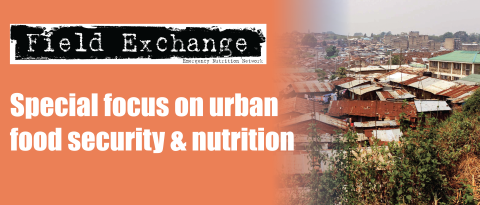Profiling methodology for displaced people in urban areas

Through a period of study and engagement with United Nations (UN) agencies and non-governmental organisations (NGOs), Feinstein International Centre (Tufts University) developed in 2012 a methodology to obtain profiling information about the population of refugees in an urban setting and how their experience compares to other groups amongst whom they live.
In seeking to develop effective programmatic interventions, it is important to understand whether displaced people in urban areas are worse off than the urban poor and other migrants amongst whom they live. However, it is difficult to identify and distinguish refugees and the internally displaced population (IDPs) from the existing urban poor. In the towns and cities of Africa, the Middle East and Asia, refugees live in low-income areas, experiencing the same problems of poverty, poor services, crime and lack of employment, and often even sharing housing with the urban poor. While the government and/or UNHCR can register refugees who present themselves to the relevant office, many refugees, including some of the most vulnerable, are often not reached or even known about by agencies. Refugees may remain deliberately ‘hidden’ to avoid contact with authorities or may be unaware of/afraid to access services.
A profiling approach can help address these programming issues by:
- Distinguishing refugees from other types of migrants A profiling study provides a clear definition of who the agency includes and does not include in the refugee group in a particular setting, and how refugees are defined differently from other migrant groups. The report explains whether, how, and why refugees are more vulnerable than other migrants and the local population in urban contexts.
- Mapping where and how refugees are distributed in the urban setting Profiling data reveal where refugees (or the target population) are located, whether they are living interspersed throughout the city or concentrated in a specific neighbourhood, and whether they live near hazardous areas (like industrial areas or garbage dumps).
- Determining locally specific factors that influence the vulnerability of poor households This considers their ability to respond to economic shocks, disasters, etc., and how refugees differ from other urban groups with regard to these factors.
As well as vulnerabilities, profiling can also reveal (relative) strengths, i.e. skills and other livelihood assets possessed by refugees and whether and how these differ from their neighbours.
Knowing the whereabouts, strengths and weaknesses of the target population can provide entry points for programming. Profiling can be used for political/advocacy purposes, as it is a relatively technical exercise that produces straightforward and verifiable data. Both the profiling exercise and the data can be used to engage with host governments to promote the rights of refugees. Profiling data can even potentially be used to show that refugees contribute to the economy.
The study’s outcomes include:
- Final report
- conceptual framework
- research summary
- recommendations on good profiling practices (to inform donors) and on programming (for implementing agencies)
- research methods (including methods, mapping tools)
- Three case studies (Aden, Yemen; Mae Sot, Thailand; and Polokwane, South Africa) that detail how the method was adapted and the tools used in each case. The database is available to other researchers on request.
- Toolkit that includes revised profiling tools
and a training module, all designed to be
easily used by field organisations. The profiling
tools include:
- the survey questionnaire
- survey data entry template
- survey sampling strategies
- urban mapping instructions
- qualitative interview schedules
- outline of a two-day training workshop.
Requests for either data or tools should be directed to Karen Jacobsen, email: Karen.Jacobsen@tufts.edu
Access the content online at: http://sites.tufts.edu/ feinstein/2012/developing-a-profiling-method ology-for-displaced-people-in-urban-areas
Imported from FEX website


